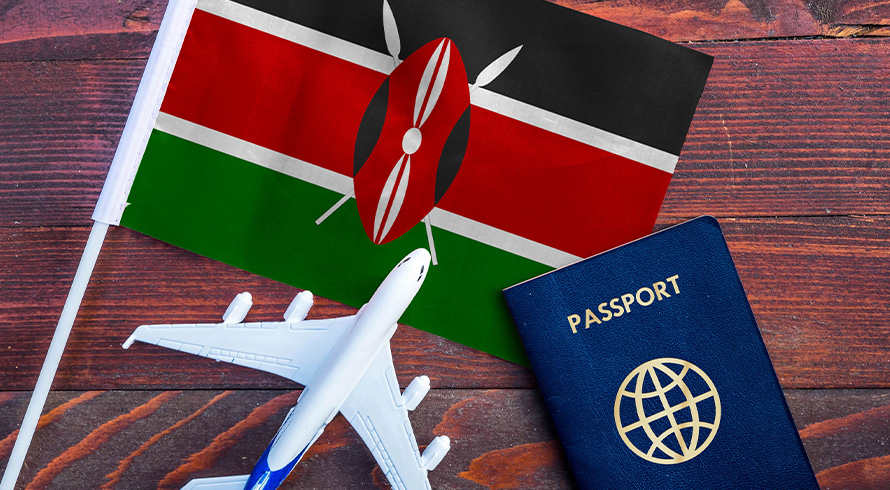Taking liberties: Unmasking of an employee’s sick leave trickery
At a glance
- In September 2020 an employee was absent from work and informed his employer that he had not been at work because he was unfit to attend. Unbeknown to the employee at the time, his direct line manager had identified him on television, while watching the evening news, as a participant at a political protest rally during his period of absence from work due to his alleged illness.
- Following a disciplinary hearing the employee was dismissed. The Commission for Conciliation, Mediation and Arbitration (CCMA) found that his dismissal was unfair. The employer then referred the matter to the Labour Court, which rejected the CCMA’s award on the basis that it was not one which a reasonable decision maker would have arrived at.
- Honesty forms the foundation of the employee-employer relationship. Where the true purpose of sick leave is ignored by employees for disingenuous reasons, employees run the risk of disciplinary action.
Facts
During the early hours of 7 September 2020 Mathebula elected to absent himself from work as he was allegedly unfit for work. At the end of the workday, he informed his employer that his absence was as a result of him being unfit to attend work.
On 8 September 2020, Mathebula again informed his employer that he would be unable to attend work due to an undisclosed illness. Mathebula was further absent from work for the remainder of the week and, upon his return, produced a medical certificate for the period of 9 to 11 September 2020, excusing him from work.
Unbeknown to Mathebula at the time, his direct line manager had identified him on television, while watching the evening news, as a participant at a political protest rally during his period of absence from work due to his alleged illness. When confronted, Mathebula became defensive and questioned the source of his direct line manager’s knowledge of his whereabouts on 7 and 8 September, however he eventually relented and conceded his participation in the political gathering while on sick leave.
Mathebula’s defence was simply that he was indeed ill during the period of his sick leave, notwithstanding his attendance at the political protest. To this end he had produced a medical certificate which his employer had accepted.
Mathebula was called before a disciplinary enquiry on the basis of his dishonest conduct and later dismissed. The decision of the chairperson was referred by Mathebula to the Commission for Conciliation, Mediation and Arbitration (CCMA) on the grounds of an unfair dismissal. It was found by the CCMA that Mathebula’s dismissal was substantively unfair.
The Commissioner tasked with the Mathebula matter found that on the evidence of the medical certificate produced it was evident that Mathebula was ill on at least 9 to 11 September 2020. Furthermore, as illness is usually progressive it can reasonably be inferred that Mathebula was ill during the two days before his visit to a physician. That Mathebula came forward and admitted that he had indeed attended the protest action on 7 and 8 September and that a medical certificate served as proof of Mathebula’s incapacity, led the Commissioner to find that Mathebula’s intention was clearly not to mislead his employer. Furthermore, Mathebula argued that he was not required to be bedridden should he wish to make use of his sick leave entitlement.
Labour Court proceedings
The Labour Court rejected the reasoning of the Commissioner and decided to review and set aside the Commissioner’s award on the basis that the outcome at the CCMA was not one which a reasonable decision maker would have arrived at.
The Labour Court’s reasons were that in all probability Mathebula was not incapacitated due to illness but that he was in fact malingering in order to attend the protest action.
Having been able to clap hands and sing, “it must follow that he would have been able to perform his contractual duties”.
The Labour Court took a dim view of Mathebula’s reaction when first confronted with the allegation of dishonesty by his line manager. The court found that he ought to have been upfront with his supervisor once confronted.
A later attempt to explain his suspicions was “feeble and actually further proves his lack of candour”.
The Labour Court concluded that Mathebula’s dishonesty could be inferred when considering all the surrounding circumstances.
Illness, being a medical condition, can only be empirically and objectively confirmed by a medical expert. Although Mathebula’s medical certificate was produced and accepted for the period of 9 to 11 September 2020, no empirical evidence was presented to prove that Mathebula was ill between 7 and 8 September 2020. The Commissioner’s findings in this regard amounted to nothing more than conjecture.
Conclusion
The grave consequence which followed Mathebula’s misconduct was as a result of his dishonesty rather than his abuse of his employer’s sick leave policy alone. This judgment serves as an important reminder to employees that a sick leave entitlement is not simply there for the taking and that employees are to act with the utmost honesty and integrity in this regard.
Honesty forms the foundation of the employee-employer relationship. Where the true purpose of sick leave is ignored by employees for disingenuous reasons, employees run the risk of disciplinary action.
Mathebula has applied for leave to appeal to the Labour Appeal Court. We will keep you informed of any further developments.
The information and material published on this website is provided for general purposes only and does not constitute legal advice. We make every effort to ensure that the content is updated regularly and to offer the most current and accurate information. Please consult one of our lawyers on any specific legal problem or matter. We accept no responsibility for any loss or damage, whether direct or consequential, which may arise from reliance on the information contained in these pages. Please refer to our full terms and conditions. Copyright © 2026 Cliffe Dekker Hofmeyr. All rights reserved. For permission to reproduce an article or publication, please contact us cliffedekkerhofmeyr@cdhlegal.com.
Subscribe
We support our clients’ strategic and operational needs by offering innovative, integrated and high quality thought leadership. To stay up to date on the latest legal developments that may potentially impact your business, subscribe to our alerts, seminar and webinar invitations.
Subscribe



